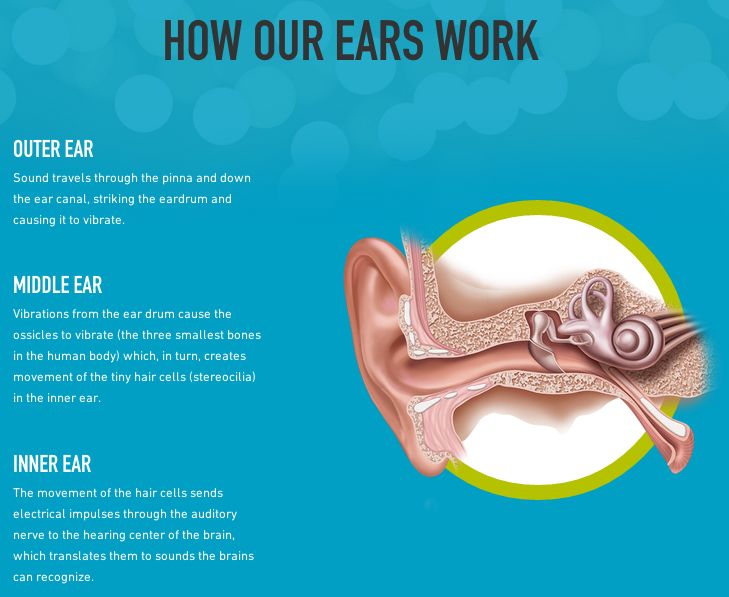With the Fall concert season rapidly approaching, you’ll see many music-lovers of all ages enjoying these outdoor concerts in a variety of different venues. However, one major health concern has been on the rise and it has to do with these popular gatherings. With the high-decibel music that occurs at the typical Fall concert, it’s no surprise that physicians are seeing a rise in hearing issues from those attending loud music festivals. With autumn being a popular time of year for these outdoor festivals, many concert goers are putting their hearing in danger without even knowing it. Hearing health awareness is important all year round, so make sure your patients know what to look for.
Hearing Health Awareness
While many assume that hearing loss only occurs when we hit our senior years, it is actually a pretty common occurrence in the younger generation as well. About 18 percent of adults aged 20-69 have speech-frequency hearing loss in both ears from among those who report 5 or more years of exposure to very loud noise at work, or during recreation. Basically, if you’re an avid concert goer, you could be putting your hearing health at risk, which is exactly why it’s important that physicians promote hearing health awareness.
Hearing Health Prevention
While we can’t always prevent hearing loss, when it comes to noise-induced hearing loss, there are a few different steps you can take.
- Lower the volume. Set the volume on electronic devices to a level that allows you to still hear what’s going on around you.
- Move away from the noise. Put some distance between you and the noise source to reduce the impact on your ears.
- Wear hearing protectors, such as earmuffs or earplugs, if you can’t leave a noisy place.
This is especially important for babies and toddlers. As we grow, so do our ears and eardrums, so make sure you’re keeping them safe during the formative years. As a physician, promoting this type of hearing health awareness can help many of your patients maintain healthy hearing.

Hearing Loss Symptoms
There are a variety of different symptoms that you and your patients should look out for if they report any hearing issues. While some are quite obvious, others might be easily ignored, so make sure you’re able to identify some of these common hearing loss symptoms.
Ears Ringing – While it can be common to have ringing ears after a particularly loud concert if the ringing persists, it might be a sign that there is damage to the eardrum. If this is the case, you might want to defer to an ear, nose, and mouth specialist to ensure that they’re getting the best possible care.
Sounds Of Mumbling or Unclear Speech – Many of your patients will come in with the complaint that they are having a hard time hearing friends or family, or that it often seems like they are mumbling. While hearing loss might not be noticeable at first, figuring out some of the communication issues your patient might have could lead you to a proper diagnosis.
Complaints of a Loud TV – Another complaint that may come from your patient’s loved ones is that they often have to yell when speaking or that the TV is often much too loud. If this is the case, this could be yet another sign that your patient is experiencing a loss of hearing.
Treatment Options
Most people with permanent hearing loss can benefit from a hearing aid — yet only one in five people who could use them do. You typically wear these tiny instruments in or behind your ear to make sounds louder. Things do sound different through a hearing aid though, so you should talk with your doctor to set realistic goals. In less severe cases, antibiotics might be able to help prevent hearing loss as well.
If you’re looking for other ways to promote hearing health awareness, check out the “It’s a Noisy Planet” campaign.
